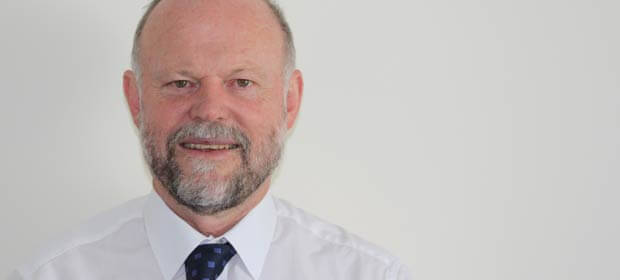Ireland needs four 24/7 Adult, one 24/7 Paediatric and one 24/7 Neonatal Retrieval and Transfer services, Dr. Geoff King, Director of the Pre-Hospital Emergency Care Council and Clinical Lead of the National Transport Medicine Programme (NTMP) told a HMI Dublin Mid Leinster meeting in the Dublin Dental Hospital.
Ireland needs four 24/7 Adult, one 24/7 Paediatric and one 24/7 Neonatal Retrieval and Transfer services, Dr. Geoff King, Director of the Pre-Hospital Emergency Care Council and Clinical Lead of the National Transport Medicine Programme (NTMP) told a HMI Dublin Mid Leinster meeting in the Dublin Dental Hospital.

Dr. King, who previously worked as Director of Medical Services with the Royal Flying Doctor Service in Queensland, Australia, said that two of these Adult Retrieval-Transfer services should be located in Dublin, one should be located in Cork and one in Galway. In addition, five or seven day, daytime services could be needed in Sligo/Letterkenny, Limerick and Waterford. There should be one 24/7 Paediatric and one 24/7 Neonatal service based in Dublin and perhaps one five or seven day, daytime Neonatal team in Cork.
Currently the Mobile Intensive Care Ambulance Service (MICAS) and the National Neonatal Transport Service (NNTP) collectively provide a platform from which to develop a comprehensive Retrieval-Transfer capability. The aim is to ultimately develop a high quality Retrieval-Transfer system that is accessible to patients and hospitals dispersed across Ireland and has the capacity to transport several patients simultaneously.
At present MICAS transports 70 adults annually, the Air Corps a further 70 and the Coastguard a small number, however, it is estimated that the requirement is 1,000 adults annually. The NNTP currently transports approximately 250 neonates annually and it is estimated that an additional 100 babies would benefit from the 24/7 service. Approximately 250 paediatric patients need transfer to tertiary specialist care. Many patients need repatriation back to referring centres.
Dr. King said that currently funding has been provided in the 2013 Service Plan for one 24/7 Neonatal team in Dublin, one 5/7 Paediatric daytime team in Dublin, an 8 to 8 seven day Adult team in Dublin, Cork and Galway and the establishment of Intermediate Care (IC) Ambulances in Dublin, Cork, Galway, Drogheda, Sligo, Castlebar, Limerick, Tralee, Bantry and Waterford. “This is an excellent start on which we hope to build further”.
The aim is to ultimately develop a high quality Retrieval-Transfer system that is accessible to patients and hospitals dispersed across Ireland and has the capacity to transport several patients simultaneously.
Dr. King said that the NTMP works across all the HSE Clinical Programmes. It has a Steering Committee consisting of Dr. Michael Power, Critical Care Lead, Dr. Una Geary, Emergency Medicine Lead, Dr. Cathal O’ Donnell, Medical Director National Ambulance Service, Dr. Garry Courtney, Acute Medicine Lead, Prof. Alf Nicholson, Paediatric Lead, Dr. John Murphy, Neonatology Lead, Dr. Michael Turner, Obstetrics Lead, Dr. Bairbre Golden, Anaesthetics Lead, Prof. Frank Keane, Acute Surgery Lead and the Office of the Nursing and Midwifery Services Director.
The Steering Committee aims to oversee the establishment of a comprehensive Retrieval-Transfer system that
- Is integrated with and supports the integration of Model 2, 3 and 4 Hospitals
- Provides bi-directional inter-facility transport for patients with needs ranging from Intermediate Care to Critical Care
- Prioritises clinically urgent as well as non-clinically (system) urgent patients, and
- Has cross Programme participation and collaboration.
The key deliverables are:
- An integrated system of clinical coordination and operational tasking
- Transport clinical staff who are skilled in the planning and delivery of emergency/critical care medicine,
- Standardised equipment for ground and air transport,
- Collection of transport data for systematic clinical and operational activity review and audit and
- An education programme that supports the programmes
“We want to establish a Retrieval-Transfer system where a team goes out from a central facility, collects patients and brings them to the appropriate hospital. Currently it is really difficult for hospitals to access ambulances in a timely manner either for conditions which are clinically or time critical. We want the system to integrate with hospitals, prioritising clinically urgent patient as well as system urgent patients. It has to have cross programme participation and collaboration and we are proposing a service model which is fully integrated within the broader health care system and which encompasses Adult, Paediatric and Neonatal Retrieval-Transfer. It will facilitate programmes achieving their objective and is essential in reconfiguring acute health services, the smaller hospitals framework and the hospitals group strategy”.

